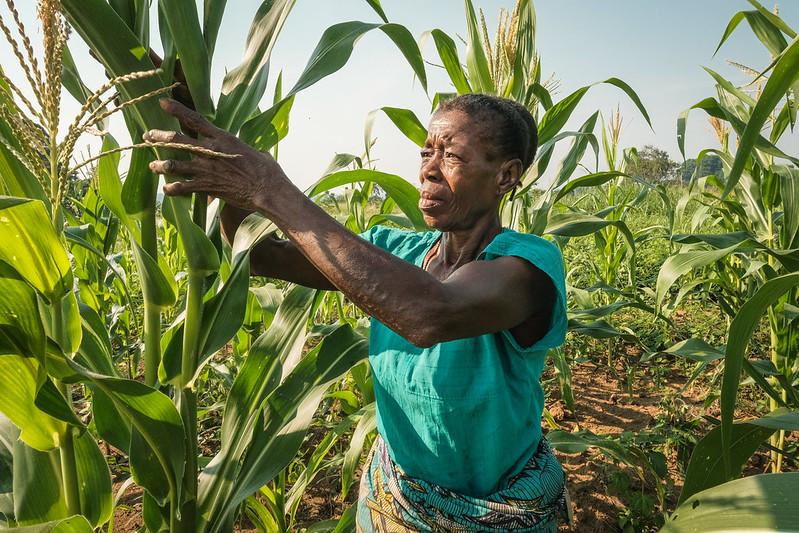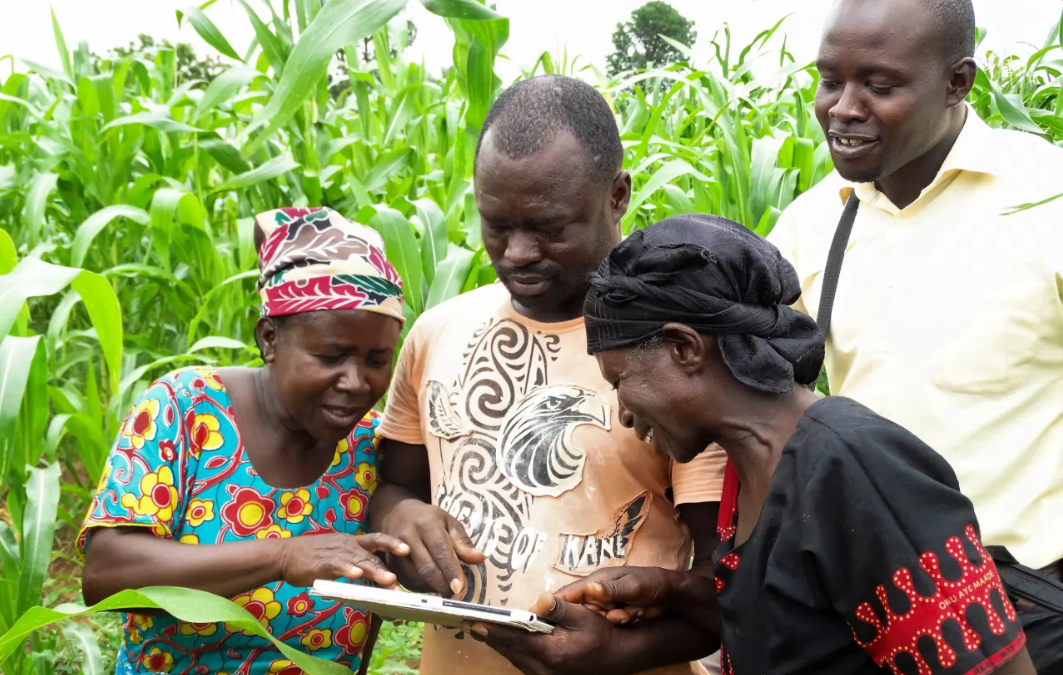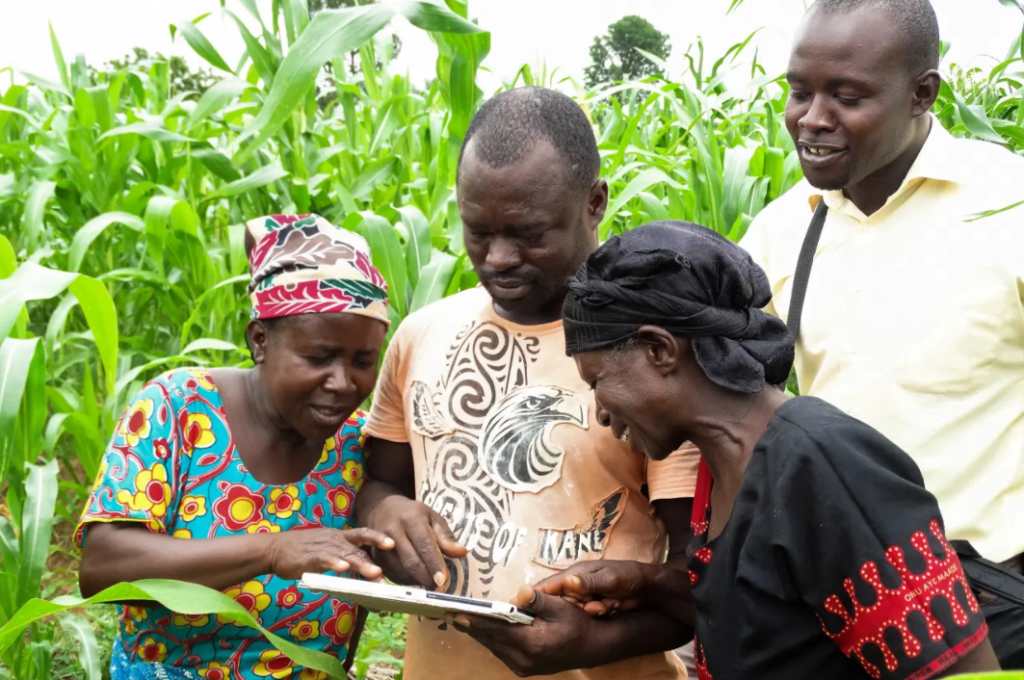Shared standards for digital agriculture
International standards in digital agriculture have the potential to transform the sector, resulting in cost savings, efficiency, and scale.
Digital platforms, tools, and services are revolutionizing the agricultural sector. Digital interventions support stakeholders such as farmers, agricultural extension workers, and private sector technicians—among many others—and allow faster and more efficient data capture, storage and analysis, and decision-making capacity. With them comes the promise of increased yields, reduced input costs, and increased profits.

Photo: Axel Fassio / CIFOR. A farmer stands in a maize near Yangambi, DRC.
While the number of interventions continues to grow, the evidence base for decision-makers to compare and contrast them has not grown at the same pace. How can decision-makers, users, and implementers know which tools and platforms to use and why?
We believe that shared standards can enable a common language for stakeholders to easily evaluate how reliable and valuable digital tools are for development outcomes.
We believe that the utilization of standards can transform the digital agriculture sector, resulting in cost savings, efficiency, and scale. For example, barcodes are internationally recognized in the creation and distribution of any products—from manufacturers to distributors to retailers to consumers. The ability to track the location, amount and gaps in inventory is critical. Before barcodes, managing inventory was difficult, and the mistakes were costly. Better insight into data around inventory and demand through the use of barcodes reduced waste, prevented stockouts, and improved efficiency and profitability.
Shared standards, if applied properly, can transform industries. We believe that with the current proliferation of digital agriculture interventions, now is the perfect time to introduce these standards and jointly identify a roadmap for their implementation.
Leveraging the expertise and experience of the digital agriculture community—from scientists and development practitioners to digital technology specialists and entrepreneurs—we can collectively develop these standards to benefit the entire community.
How can you join us?
The Data-Driven Agronomy Community of Practice invites you to contribute your innovative ideas and identify roadmaps to implementation at our technical session, “Open Validation Standards for digital services in Agriculture” at the upcoming, third annual Big Data in Agriculture Convention in Hyderabad, India, 16-18 October 2019.
During our session, we will introduce and socialize the standards concept, validate the categories for digital agriculture and the governance structure for the development of the standards, explore cost and value in the maintenance and financing of standards, and set the stage for a process of design to begin.
If you are unable to attend and would still like to engage in the development process to implement digital agricultural service standards in a transparent and open access way, then please complete this form, and we will be in touch.
October 8, 2019
Maria Camila Gomez (CIAT), Carolyn Florey (IRRI), and Wietske Kropff (CIAT)
Data-Driven Agronomy Community of Practice
CGIAR Platform for Big Data in Agriculture
Latest news






